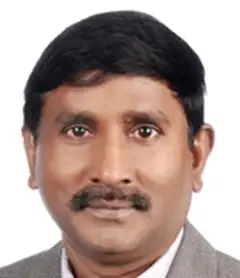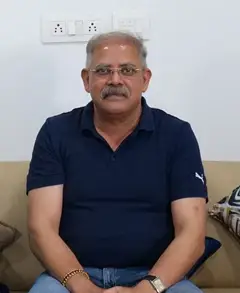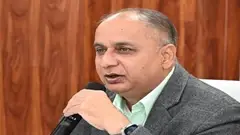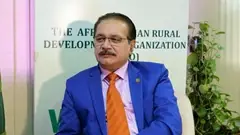
Dr. Philipp Ackermann, German Ambassador to India, visited Krishi Jagran Office in New Delhi on July 24, 2024. MC Dominic, Founder and Editor-in-Chief of Krishi Jagran engaged in an insightful conversation with him. The discussion covered a range of topics including Indo-German collaboration in agriculture, the export of Indian mangoes to Germany, and the promotion of organic farming in India.
M.C. Dominic: Today is a special day as we welcome Dr. Philipp Ackermann, the German Ambassador who is deeply passionate about India and feels very much like one of us. His extensive travels across our nation highlight his commitment. India and Germany have enjoyed a strong partnership for many years. Recent economic surveys and reports indicate a growing interest from German business leaders to invest in India. What do you believe inspires such confidence in German investors towards India?
Dr. Philipp Ackermann: The reasons for the strong relationship between India and Germany are numerous. A key factor is the similarity in our political systems—Germany is also a federal state with strong state governments. German businesses understand that state governments in both countries can significantly facilitate investment and support. This culture of support helps German companies feel confident in setting up businesses in India, whether in Delhi, Chennai, or Bhubaneswar. Despite the ongoing trade imbalance between our countries, there is a growing positive outlook among German companies towards India, seeing it as an increasingly favorable destination for investment.
M.C. Dominic: Which sector is attracting the most investment?
Dr. Philipp: Over 2000 German companies are doing business in India, spanning the entire industrial spectrum. From big companies like Siemens to small and medium-sized enterprises, they are developing advanced technological products, including watch manufacturing and rockets. Many have set up in Pune to digitize their operations, recognizing India as the ideal market for such innovation. This reflects the high regard for India's education, capacity, innovation, and immense potential, which is why Germany is increasingly looking towards India.
M.C. Dominic: We would like to know about the Indo-German Agriculture Development Project, where you exported mangoes to Germany. Could you shed some light on it?
Dr. Philipp: Enhancing trade between farming communities is extremely important to us. For instance, the first batch of North Indian mangoes was recently shipped to Europe. This was a major achievement from a project between Germany and India aimed at meeting the phytosanitary standards for mango exports. Reaching this level was challenging, but we succeeded by sending the first batch of UP mangoes to Germany.
Moreover, we are promoting organic farming in India with a significant project in Andhra Pradesh that trains farmers in organic practices. This initiative targets export-oriented farming of crops like ginger, turmeric, and cardamom, which have a market when grown organically. There is considerable potential for these products in Germany.
M.C. Dominic: Germany is supporting India, especially in organic farming. How are you encouraging farmers towards it?
Dr. Philipp: Our experts educate farmers about the certifications required for organic farming and provide other support to encourage the transition from traditional to organic farming. This shift is not easy, particularly for small farming units. We train these farmers and help them understand the benefits of organic farming. Additionally, we are negotiating a Free Trade Agreement with India, which may include agriculture, making trade exchanges much easier.
M.C. Dominic: What is the shift in Germany towards organic farming?
Dr. Philipp: There is a growing consumer awareness in Germany about healthy and sustainable food due to climate change. Organic produce is now common in supermarkets. Approximately 10-15 percent of our farmers are organic, reflecting this shift in consumer consciousness.
M.C. Dominic: What are your thoughts on the recent trend of preferring vegetarian foods over non-vegetarian foods?
Dr. Philipp Ackermann: Meat consumption is decreasing in Germany as people explore other dietary options. The vegan movement is gaining momentum, and vegetarian foods are becoming more popular in the German market.
M.C. Dominic: In your opinion, what can India learn from Germany, especially in farming?
Dr. Philipp: Agriculture plays an important role in India’s GDP, yet there's a disparity with about 50 percent of the population working in agriculture contributing only around 16 percent to the GDP. Modernizing India's agriculture sector is need of the hour. Organic farming can be a significant income source for the farming community. One of Germany's strengths is the institution of cooperatives, which enables small farmers to share resources like machinery. This cooperation could greatly benefit Indian farmers, allowing them to manage costs better and increase their income.
M.C. Dominic: Similarly, what can Germany learn from India?
Dr. Philipp: There is much to learn from India's approach to food. People have a deep emotional connection with agriculture and food, which is different from Germany. This consciousness and attachment to agriculture are aspects Germany can appreciate and learn from.
M.C. Dominic: What is your take on the Indian farming community?
Dr. Philipp Ackermann: I have the greatest respect for the farming community. Farming is the foundation of our living. India produces the best vegetables, spices, and fruits. I recognize the significant role of the farming community in India and see a lot of potential and opportunities in the agriculture sector here. The Indian government and farmers must focus on achieving further progress in this area.
Compiled & written by Shivam Dwivedi, following an in-depth interview with Dr. Philipp Ackermann















Share your comments